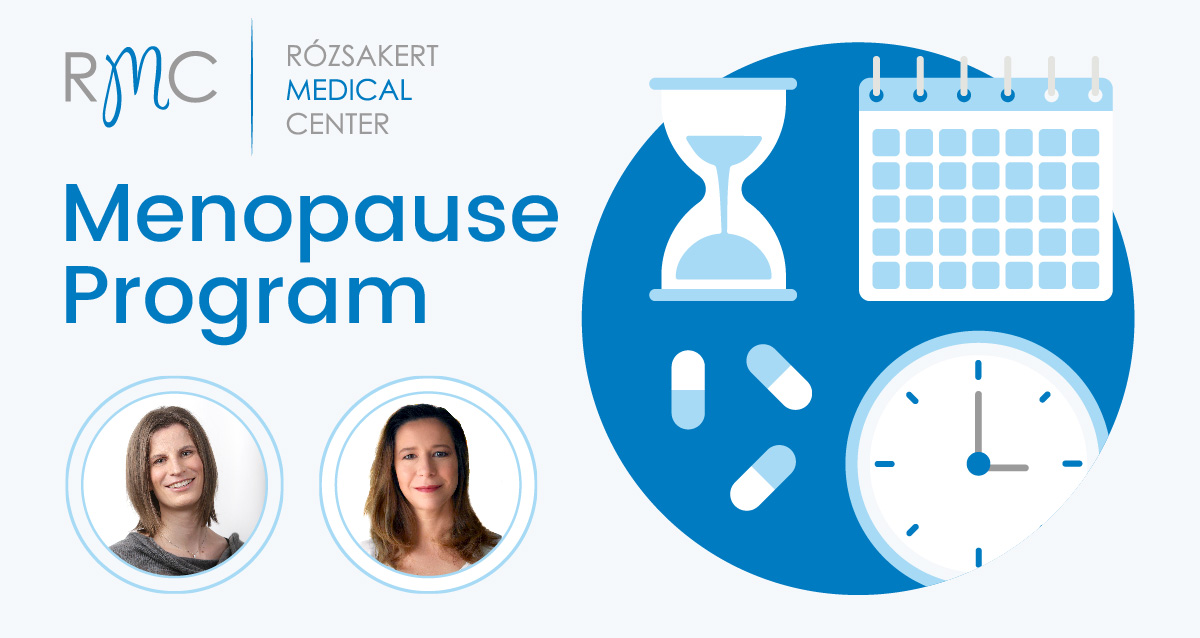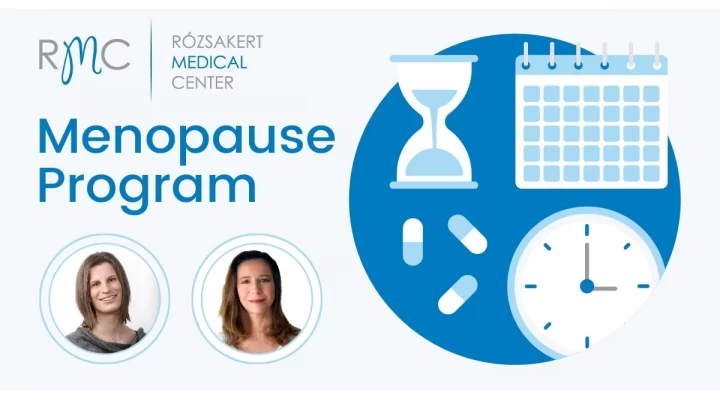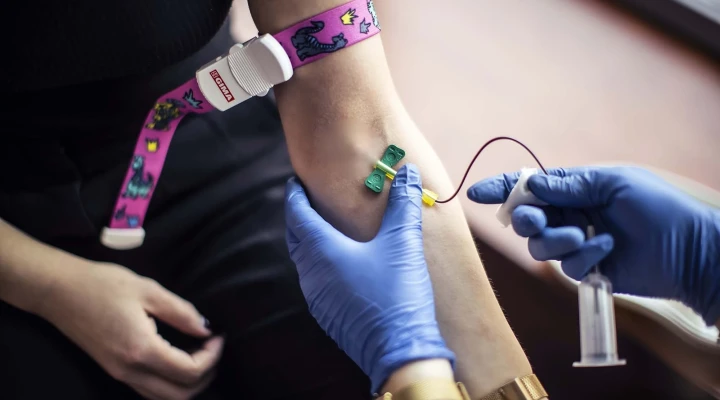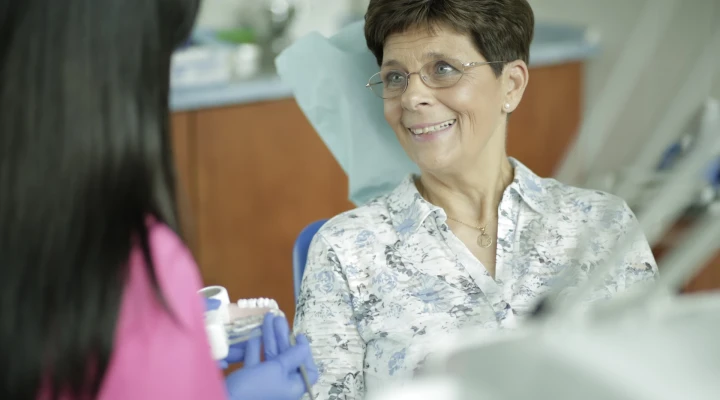Around two thirds of women experience discomforting symptoms as a result of the menopause. The menopause is a natural process whose symptoms and complications can be reduced, yet it is something that we rarely discuss. We spoke to the two specialists of our Menopause Program, Dr Tímea Baló, RMC diabetologist, endocrinologist and internist and Dr Nóra Gullai, an obstetrician-gynecologist and audited ultrasound specialist, about why it is important to take a deliberate and comprehensive approach to this issue.

What is the menopause and what stages does it take?
Dr Nóra Gullai: The menopause is a natural state that signals the end of a woman's fertile stage of life. It occurs as a result of physiological, hormonal changes. The number and quality of eggs decrease: fewer and fewer of them mature, and over time the eggs are completely depleted and not enough estrogen and progesterone are produced.
Dr Tímea Baló: This is not a sudden change. It is gradual, progressive, as the body prepares for this process. There is a total of four stages in all: perimenopause, premenopause, menopause and postmenopause. In the years leading up to the menopause, your period may become irregular, with gaps of up to several months: this period is known as the perimenopause, and can begin several years before the menopause. In this period, falling pregnant is unlikely, but still possible. The period directly before the menopause is known as the premenopause. We consider it the menopause if the woman has not experienced menstruation for at least 12 months. The following period is known as postmenopause. In the vernacular, however, menopause is usually understood to mean the entire postmenopausal stage of life after a woman stops having her period.
At what age does the menopause usually occur?
T.B.: In Hungary, on average menstruation stops around the age of 50 to 52, but the first signs of perimenopause occur around the age of 40 to 45. On average, the entire menopause period lasts four to eight years.
N.G.: If it begins earlier than that, under the age of 40, it is considered an early menopause. This also includes women who have had their ovaries removed. Above the age of 40, menopause is no longer abnormal, but if it occurs around the age of 40 it is still earlier than the average. But there is significant variance. I have seen a 31-year-old who was menopausal, and also some women who were still menstruating at the age of 56.
What kind of symptoms do women who are going through the change experience?
T.B.: The first signs of the menopause are a change in or the absence of menstruation, which is why patients usually first present the symptoms to a gynecologist or endocrinologist. It is also characterized by the detection of hot flushes and mood swings, a slowdown in metabolism and an associated weight gain, as well as greater difficulty losing weight. For example, many women complain that previously successful diets don't manage to shift those extra pounds. Sleep disturbances and urinary incontinence are also common issues.
N.G.: Some women are lucky – around 30% of women going through the change – and manage to go through this period symptom-free or with only light, temporary symptoms.
Why is it so important that the menopause isn't seen as a taboo?
T.B.: The menopause is a natural process, not a disease. However, in addition to some unpleasant symptoms, unfortunately, there are unfavorable physiological processes are associated with the change, such as a decrease in bone density and an increase in cardiovascular disease. But it is important to emphasize that the severity and risks of these symptoms can be reduced, which is why at RMC we encourage our patients to be much more conscious in their approach. Come for an examination so we can help you – and if we uncover some underlying disease or condition, we can start treating it as soon as possible.
What approach did you take when compiling the package and the recommended examinations?
T.B: Menopause involves many changes in our body, so it requires a complex internal medicine and gynecological assessment. This is reflected in the list of recommended examinations. The program is based on the latest international guidelines. After learning about the patient's medical history, we continue with a physical examination, imaging tests (e.g., bone density measurement, mammography) and a gynecological screening. In light of these, if necessary we refer the patient to our psychiatrist or urologist colleagues to support their urological and mental health.
N.G: And in terms of the proposed treatment, we begin with the least drastic, with each treatment plan specially tailored to the individual. In all cases, one key element of treatment is the recommendations regarding your lifestyle. Increasing your level of physical activity and keeping to a balanced diet will also support your general sense of wellbeing and help you maintain your ideal weight.
In your experience, how can the program help women, what kind of changes can it bring them?
N.G: By reducing the issues that occur in their daily lives, we can significantly improve the quality of life of patients. This helps them to live their life to the full even during this period. After all, contrary to the fears of many, menopause does not rob you of either your femininity or your sex life.




